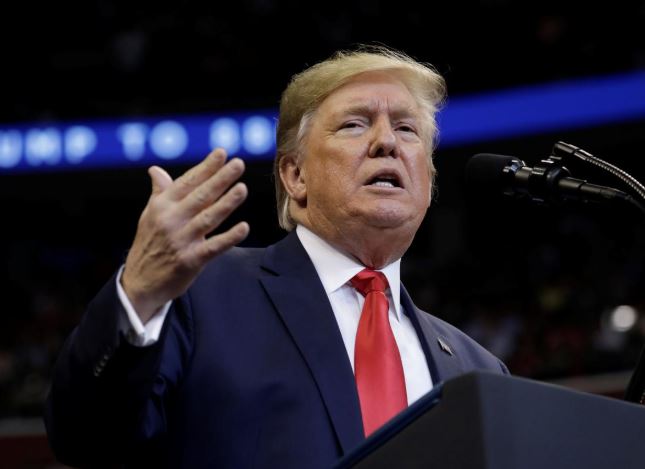 English
English

US President Donald Trump on Wednesday signed into law congressional legislation backing protesters in Hong Kong despite angry objections from Beijing, with which he is seeking a deal to end a damaging trade war.

Washington: US President Donald Trump on Wednesday signed into law congressional legislation backing protesters in Hong Kong despite angry objections from Beijing, with which he is seeking a deal to end a damaging trade war.
The legislation, approved unanimously by the U.S. Senate and by all but one lawmaker in the House of Representatives last week, requires the State Department to certify, at least annually, that Hong Kong retains enough autonomy to justify favorable U.S. trading terms that have helped it maintain its position as a world financial center.
The law also threatens sanctions for human rights violations. Congress passed a second bill, which Trump also signed, banning the export to the Hong Kong police of crowd-control munitions, such as teargas, pepper spray, rubber bullets and stun guns.
“I signed these bills out of respect for President Xi (Jinping), China, and the people of Hong Kong. They are being enacted in the hope that Leaders and Representatives of China and Hong Kong will be able to amicably settle their differences leading to long term peace and prosperity for all,” Trump said in a statement.
At the heart of matter is Beijing’s promise to allow Hong Kong a “high degree of autonomy” for 50 years when it regained sovereignty over the city in 1997, a pledge that has formed the basis of the territory’s special status under U.S. law. Protesters say freedoms have been steadily eroded.
Trump had been vague about whether he would sign or veto the legislation, while trying to strike a deal with China on trade that he has made a top priority ahead of his 2020 re-election bid.
After Congress passed the bill, Trump’s aides debated whether the president’s endorsement could undermine efforts to reach an interim trade deal with China, and most of them ultimately recommended the signing to show support for the protesters, a person familiar with the matter said.
The decision was also influenced by the overwhelming majorities in the Senate and House in favor of the legislation, which was widely seen as making the bills veto-proof, as well as the landslide election victory in Hong Kong earlier this week of critics of Chinese rule, the person said, speaking on condition of anonymity.
Also Read: U.S. Supreme Court extends block on Donald Trump financial records dispute
If Trump had opted to use his veto, it could have been overridden by two-thirds votes in both the Senate and the House. The legislation would have automatically become law on Dec. 3 if Trump had opted to do nothing. China has denounced the legislation as gross interference in its affairs and a violation of international law.
After the Senate passed the legislation, Beijing vowed counter-measures to safeguard its sovereignty and security. (Reuters)